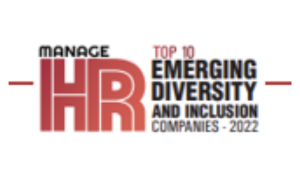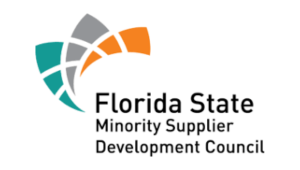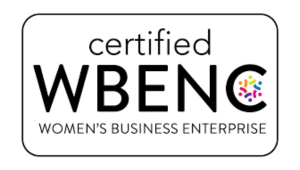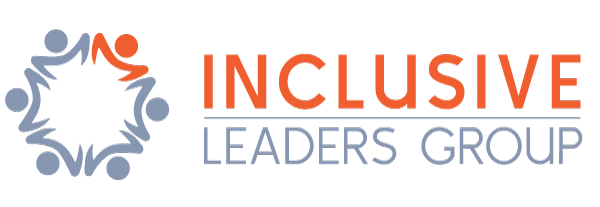
A workplace that values diversity, equity, and inclusion has been shown to be more engaging, productive, and profitable. Consider performing a DEI audit on your workplace.
Conducting a DEI Audit of Your Business
To develop an effective DEI strategy, you need to be aware of your current diversity and inclusion profile and how it affects your company or organization; this is where conducting a DEI audit or DEI assessment is the right thing to do.
A DEI audit can present a valuable framework for analyzing and measuring diversity and inclusion within your workplace while also identifying areas of opportunity. By evaluating your people, processes, and strategies, you’ll be able to gain valuable insights into the systemic or cultural barriers that impede your organization’s ability to attract, recruit, and retain diverse talent. You can then use these insights to set your business up for success in building and implementing a DEI strategic plan.
A good DEI assessment will prioritize where to focus your efforts, provide benchmarking before implementing new initiatives, and offer valuable feedback about your programs’ ongoing health over time. But it doesn’t stop there; consider these compelling reasons for assessing your organization’s commitment to diversity, equity, and inclusion. Here are three reasons for consideration when conducting an effective DEI audit. (Note: It is strongly recommended that employers consider partnering with an outside DEI expert when conducting this audit).
3 Reasons Your Organization Needs a Current State DEI Audit
- Diversity, equity, and inclusion are good for your business.
Today’s employees want to work for organizations that are coordinated with current social issues. This doesn’t mean that you need to take a political stand, but it’s important to demonstrate that you are paying attention. Reinforcing your organization’s commitment to diversity, equity, and inclusion, by conducting a DEI assessment and developing a DEI strategic plan aligned with your business strategy helps employees feel respected, valued, and proud of where they work.
Because of the broader perspectives involved, a diverse and inclusive workforce has been shown to contribute to more robust and comprehensive products and service offerings. Employees take more ownership and pride in their work, fostering a higher degree of productivity and employee engagement. Company efficiency improves as employees feel more invested, which has been proven to increase the bottom line.
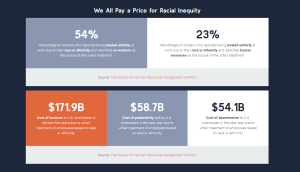
- Workplace discrimination is extremely costly.
A DEI assessment can uncover risks before they become a problem. On average, an employee lawsuit will take 318 days to be resolved, nearly an entire year—creating a costly distraction to your business. Additionally, courts are driving the point home with awards exceeding $310 million, as displayed in a recent case against Google. In this lawsuit, shareholders claimed that at Google’s parent company, Alphabet, senior executives improperly awarded multi-million-dollar severance packages to male executives who had been credibly accused of sexually harassing female employees.
Employee turnover due to racial inequity in the workplace has cost U.S. organizations up to $172 billion over the past five years. The Society for Human Resource Management’s (SHRM’s) new report, The Cost of Racial Injustice, released in April 2021, found that one-third of Black employees faced unfair treatment at work based on race and ethnicity in the past year.
Over the same period, 26 percent of Asian employees and 21 percent of Hispanic or Latino employees experienced unfair treatment in the workplace due to their race or ethnicity.
Absences due to anxiety, worry, stress or frustration stemming from experiencing—or witnessing—unfair treatment based on race or ethnicity at work may have cost U.S. businesses up to $54 billion in the past year. Lost productivity during that time was even more costly, carrying a price tag of $59 billion.
By ignoring the DEI lens on business operations, employers become vulnerable to these potential employee discrimination claims and lawsuits. Besides the direct disruption, the damage caused by workplace discrimination works its way throughout your organization. The stress may contribute to increased absenteeism, leaves of absence, or even employees quitting their jobs. These impacts have ripple effects that extend out to the organization’s reputation, brand, and even the community.
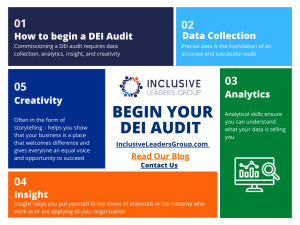
- DEI assessments and follow-through improve employer brand and increase employee retention.
Employees do not want to work in a toxic environment or one that doesn’t value and accept them for their differences. A toxic environment leads to increased turnover and higher recruiting and onboarding costs. Many companies struggle to find and retain good employees; maintaining a strong history of valuing diversity, equity, and inclusion can be essential in a company’s hiring and retention strategy.
Research has shown that when employers value and respond to employee feedback like that obtained from the employee survey included in a good DEI assessment, they reap significant rewards. Advancing your DEI efforts fosters a culture of respect that increases employee morale and leads to better innovation and improved financial performance.
Additional benefits from performing a DEI assessment include:
- Set a baseline for organization’s inclusion and belonging
- Understand context including goals, current metrics, stakeholder concerns and feedback
- Analysis of workforce demographics and dispositions
- Develop roadmap with actions tied to specific metrics and goals

As CEO and Principal Consultant of Inclusive Leaders Group, LLC, Charlotte Hughes MS, CDP, SHRBP, CPLP brings a diverse background as an accomplished Workforce and Organizational Development and Diversity & Inclusion global thought leader and practitioner for major Fortune 100 companies and one of the largest health systems in the U.S. Charlotte helps organizations develop their DEI strategy and provides DEI education for talent and organizational development. Schedule a discovery discussion with Charlotte about conducting a DEI assessment and developing your DEI strategic plan. Contact her on Calendly or this Contact Form.





